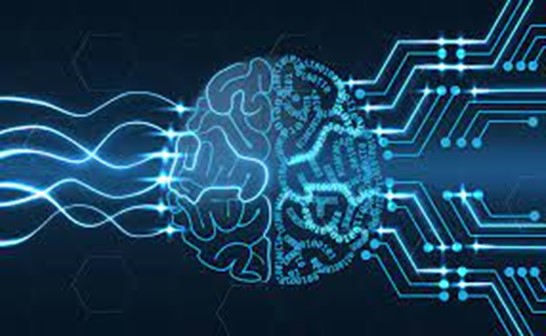In this piece, we journey through the evolution of artificial intelligence (AI), highlighting influential figures like Marvin Minsky and Douglas Hofstadter. We’ll delve into their theories and discuss the impact of deep learning and cognitive computing on AI. Alongside, we’ll touch upon the potential uses and ethical considerations of these advances.
SwissCognitive Guest Blogger: SwissCognitive Guest Blogger: Dr. Raul V. Rodriguez, Vice President, Woxsen University – “From Minsky to LeCun: Thinkers Who Paved the Way for Cognitive AI”
 Artificial Intelligence (AI) has come a long way since its inception in the mid-20th century. From the early days of simple rule-based systems to the current advanced deep learning models, AI has undergone several transformations, leading to unprecedented advancements in various fields.
Artificial Intelligence (AI) has come a long way since its inception in the mid-20th century. From the early days of simple rule-based systems to the current advanced deep learning models, AI has undergone several transformations, leading to unprecedented advancements in various fields.
One of the most exciting areas of AI research today is cognitive capabilities. Cognitive capabilities refer to the ability of an AI system to process information, reason, learn, perceive, and understand natural language, just like humans do. In this article, we will explore how AI will develop cognitive capabilities, citing thinkers and theories.
One of the foremost thinkers in the field of AI and cognitive science is Marvin Minsky. He co-founded the Massachusetts Institute of Technology’s (MIT) Artificial Intelligence Laboratory in 1959 and was one of the pioneers in the field of AI. In his book “The Society of Mind,” Minsky proposed a theory of the mind as a collection of interacting agents that work together to achieve goals. He believed that this approach could lead to the development of an AI system that is capable of human-like cognitive capabilities.
Another prominent thinker in the field of AI and cognitive science is Douglas Hofstadter. In his book “Gödel, Escher, Bach: An Eternal Golden Braid,” Hofstadter proposed a theory of consciousness that is based on the idea of self-reference. He suggested that the ability to understand oneself is a crucial aspect of consciousness and that AI systems that can understand themselves could be said to have achieved consciousness.
More recently, researchers have been exploring the field of deep learning, which involves training neural networks to learn from large amounts of data. One of the pioneers in this field is Yann LeCun, who is the Director of AI Research at Facebook. LeCun has proposed that deep learning can lead to the development of AI systems that are capable of human-like cognitive capabilities.
Thank you for reading this post, don't forget to subscribe to our AI NAVIGATOR!
Researchers are also exploring the field of cognitive computing, which combines AI with other technologies like natural language processing and machine learning to create systems that can reason and understand complex information. IBM Watson is one such system that has been developed using cognitive computing.
In conclusion, the development of AI with cognitive capabilities is an exciting area of research, and many thinkers and theories have contributed to our understanding of how AI systems can achieve human-like cognitive capabilities. The progress in AI development is expected to continue, leading to unprecedented advancements in various fields, including healthcare, education, and finance. The potential benefits of these advancements are enormous, but it is important to consider the ethical and societal implications of AI as well.
About the Author:
 Dr. Raul Villamarin Rodriguez is the Vice President of Woxsen University. He is an Adjunct Professor at Universidad del Externado, Colombia, a member of the International Advisory Board at IBS Ranepa, Russian Federation, and a member of the IAB, University of Pécs Faculty of Business and Economics. He is also a member of the Advisory Board at PUCPR, Brazil, Johannesburg Business School, SA, and Milpark Business School, South Africa, along with PetThinQ Inc, Upmore Global and SpaceBasic, Inc. His specific areas of expertise and interest are Machine Learning, Deep Learning, Natural Language Processing, Computer Vision, Robotic Process Automation, Multi-agent Systems, Knowledge Engineering, and Quantum Artificial Intelligence.
Dr. Raul Villamarin Rodriguez is the Vice President of Woxsen University. He is an Adjunct Professor at Universidad del Externado, Colombia, a member of the International Advisory Board at IBS Ranepa, Russian Federation, and a member of the IAB, University of Pécs Faculty of Business and Economics. He is also a member of the Advisory Board at PUCPR, Brazil, Johannesburg Business School, SA, and Milpark Business School, South Africa, along with PetThinQ Inc, Upmore Global and SpaceBasic, Inc. His specific areas of expertise and interest are Machine Learning, Deep Learning, Natural Language Processing, Computer Vision, Robotic Process Automation, Multi-agent Systems, Knowledge Engineering, and Quantum Artificial Intelligence.


In this piece, we journey through the evolution of artificial intelligence (AI), highlighting influential figures like Marvin Minsky and Douglas Hofstadter. We’ll delve into their theories and discuss the impact of deep learning and cognitive computing on AI. Alongside, we’ll touch upon the potential uses and ethical considerations of these advances.
SwissCognitive Guest Blogger: SwissCognitive Guest Blogger: Dr. Raul V. Rodriguez, Vice President, Woxsen University – “From Minsky to LeCun: Thinkers Who Paved the Way for Cognitive AI”
One of the most exciting areas of AI research today is cognitive capabilities. Cognitive capabilities refer to the ability of an AI system to process information, reason, learn, perceive, and understand natural language, just like humans do. In this article, we will explore how AI will develop cognitive capabilities, citing thinkers and theories.
One of the foremost thinkers in the field of AI and cognitive science is Marvin Minsky. He co-founded the Massachusetts Institute of Technology’s (MIT) Artificial Intelligence Laboratory in 1959 and was one of the pioneers in the field of AI. In his book “The Society of Mind,” Minsky proposed a theory of the mind as a collection of interacting agents that work together to achieve goals. He believed that this approach could lead to the development of an AI system that is capable of human-like cognitive capabilities.
Another prominent thinker in the field of AI and cognitive science is Douglas Hofstadter. In his book “Gödel, Escher, Bach: An Eternal Golden Braid,” Hofstadter proposed a theory of consciousness that is based on the idea of self-reference. He suggested that the ability to understand oneself is a crucial aspect of consciousness and that AI systems that can understand themselves could be said to have achieved consciousness.
More recently, researchers have been exploring the field of deep learning, which involves training neural networks to learn from large amounts of data. One of the pioneers in this field is Yann LeCun, who is the Director of AI Research at Facebook. LeCun has proposed that deep learning can lead to the development of AI systems that are capable of human-like cognitive capabilities.
Thank you for reading this post, don't forget to subscribe to our AI NAVIGATOR!
Researchers are also exploring the field of cognitive computing, which combines AI with other technologies like natural language processing and machine learning to create systems that can reason and understand complex information. IBM Watson is one such system that has been developed using cognitive computing.
In conclusion, the development of AI with cognitive capabilities is an exciting area of research, and many thinkers and theories have contributed to our understanding of how AI systems can achieve human-like cognitive capabilities. The progress in AI development is expected to continue, leading to unprecedented advancements in various fields, including healthcare, education, and finance. The potential benefits of these advancements are enormous, but it is important to consider the ethical and societal implications of AI as well.
About the Author:
Share this: